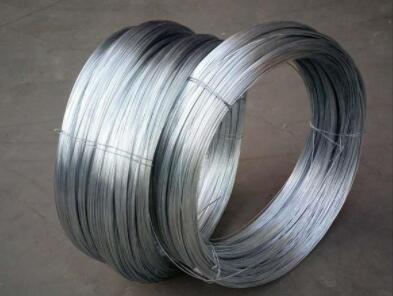The Versatility and Applications of 18 Gauge GI Binding Wire
When it comes to construction and crafting, the use of quality materials is crucial for durability and efficiency. One such material that has found its way into various industries is the 18 gauge GI (Galvanized Iron) binding wire. This article explores the characteristics, applications, and advantages of using 18 gauge GI binding wire in different sectors.
Characteristics of 18 Gauge GI Binding Wire
The 18 gauge designation refers to the diameter of the wire, which is approximately 1.02 mm. This thickness offers a balance between strength and flexibility, making it suitable for various applications. The GI aspect indicates that the wire is galvanized, meaning it has been coated with a layer of zinc to prevent rust and corrosion. This treatment is particularly beneficial in environments that may be exposed to moisture, as it enhances the wire's lifespan and reliability.
Applications of 18 Gauge GI Binding Wire
One of the primary uses of 18 gauge GI binding wire is in the construction industry. It serves as an essential tool for tying rebar together during the concrete setting process. The wire's strength allows it to hold the bars securely in place, ensuring structural integrity. Moreover, the flexibility of the wire enables workers to maneuver it into different positions, making it an ideal choice for various rebar configurations.
In addition to construction, 18 gauge GI binding wire is widely utilized in agricultural settings. Farmers often use this wire to secure plants to stakes, support trellises, or bind bales of hay. Its robustness helps withstand outdoor conditions while providing necessary support for plant growth.
18 gauge gi binding wire

The crafting and DIY communities also benefit from this versatile binding wire. Crafters use it to create intricate designs, secure materials together, or even construct lightweight frames for artworks. The ability to easily manipulate and shape the wire allows for creativity without compromising strength.
Advantages of Using 18 Gauge GI Binding Wire
One of the standout benefits of 18 gauge GI binding wire is its resistance to corrosion. Its galvanization process makes it highly suitable for various outdoor applications. Unlike non-galvanized wire, which can quickly rust and weaken when exposed to moisture, GI binding wire maintains its integrity over time. This feature is particularly crucial in construction and agriculture, where exposure to the elements is inevitable.
Moreover, the wire's thickness strikes a perfect balance between being lightweight and sturdy. It is easy to handle, and its tensile strength ensures that it can support significant loads without breaking. This balance makes it a favorite among both professionals and hobbyists.
Another significant advantage is cost-effectiveness. Compared to alternative binding materials, 18 gauge GI binding wire is budget-friendly while offering superior performance. This affordability without compromising quality makes it a go-to choice for various projects, whether large-scale construction jobs or smaller crafting endeavors.
Conclusion
In conclusion, 18 gauge GI binding wire is an indispensable tool across numerous industries. Its properties of strength, flexibility, and corrosion resistance make it suitable for diverse applications, from construction and agriculture to crafting and DIY projects. The combination of cost-effectiveness and durability ensures that this binding wire will remain a staple in many practices for years to come. For anyone involved in building, farming, or creating, having 18 gauge GI binding wire in their toolkit is a wise investment that yields reliable results.

















